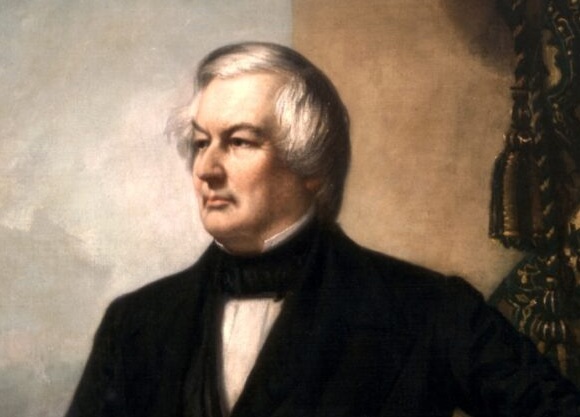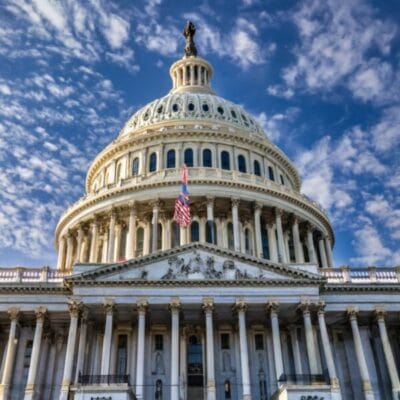Bill Clinton was the 42nd president of the United States, serving from 1993 to 2001.

He was a member of the Democratic Party and the first president from the Baby Boomer generation.
He is also known for being impeached by the House of Representatives in 1998 for lying about his affair with Monica Lewinsky, a White House intern, but he was acquitted by the Senate in 199912.
Some of his major achievements as president include:
- Presiding over the longest period of peacetime economic expansion in American history1
- Signing the North American Free Trade Agreement (NAFTA) and the General Agreement on Tariffs and Trade (GATT), which expanded trade with other countries1
- Enacting the 1994 Crime Bill, which increased funding for law enforcement and crime prevention programs, and imposed stricter penalties for some offenses1
- Signing the Family and Medical Leave Act, which granted workers unpaid leave for family or medical reasons1
- Initiating the Clinton Doctrine, which stated that the U.S. would intervene militarily to stop genocide, ethnic cleansing, and human rights violations in other countries3
- Negotiating the Oslo Accords, which aimed to resolve the Israeli-Palestinian conflict, and the Dayton Agreement, which ended the Bosnian War13
Some of his major controversies as president include:
- Failing to pass a comprehensive health care reform plan, known as the Health Security Act, which faced strong opposition from Republicans and some Democrats1
- Being accused of sexual harassment and misconduct by several women, such as Paula Jones, Kathleen Willey, and Juanita Broaddrick2
- Being involved in the Whitewater scandal, which investigated his involvement in a failed real estate venture in Arkansas2
- Firing seven employees of the White House travel office, which sparked allegations of cronyism and corruption2
- Pardoning 140 people on his last day in office, including his half-brother Roger Clinton and his former business partner Susan McDougal2
Bill Clinton is married to Hillary Rodham Clinton, who served as the First Lady of the United States from 1993 to 2001, as a U.S. Senator from New York from 2001 to 2009, as the Secretary of State from 2009 to 2013, and as the Democratic presidential nominee in 2016.
They have one daughter, Chelsea Clinton, who is an author, activist, and vice chair of the Clinton Foundation14.
Bill Clinton policies
Bill Clinton was the 42nd president of the United States, and he implemented various policies during his presidency that affected the economy, trade, welfare, crime, environment, and foreign affairs. Some of his policies are:
- Economic policy: Clinton raised taxes on higher income earners and cut spending on defense and welfare, which helped reduce the budget deficit and create a surplus. He also signed free trade agreements such as NAFTA and GATT, which expanded trade with other countries. His economic policies are credited with creating a decade of prosperity and job growth in the U.S12
- Welfare reform: Clinton signed the Personal Responsibility and Work Opportunity Reconciliation Act of 1996, which reformed the welfare system by requiring recipients to work or seek work within two years, limiting the total time they could receive benefits to five years, and giving states more flexibility to design their own programs. The number of people on welfare declined significantly after the reform12
- Crime policy: Clinton enacted the Violent Crime Control and Law Enforcement Act of 1994, also known as the Crime Bill, which increased funding for law enforcement and crime prevention programs, imposed stricter penalties for some offenses, banned certain assault weapons, and expanded the death penalty. The Crime Bill also included the Violence Against Women Act, which provided resources and support for victims of domestic violence and sexual assault. The crime rate dropped during Clinton’s presidency, but some critics argue that the Crime Bill contributed to mass incarceration and racial disparities in the criminal justice system13
- Environmental policy: Clinton issued executive orders and signed legislation to protect the environment and combat climate change. He established 17 new national monuments, expanded the Clean Air Act, created the Energy Star program, ratified the Kyoto Protocol, and supported renewable energy sources. He also faced opposition from Republicans and some industries over his environmental regulations and initiatives24
- Foreign policy: Clinton pursued a doctrine of humanitarian interventionism, which stated that the U.S. would use military force to stop genocide, ethnic cleansing, and human rights violations in other countries. He also engaged in diplomacy and peace negotiations to resolve conflicts and promote cooperation. Some of his foreign policy achievements include the Oslo Accords between Israel and Palestine, the Dayton Agreement that ended the Bosnian War, the Good Friday Agreement that ended the Northern Ireland conflict, and the normalization of relations with Vietnam. Some of his foreign policy challenges include the Rwandan genocide, the Somali civil war, the Haitian coup d’état, the North Korean nuclear crisis, and the Kosovo War12



